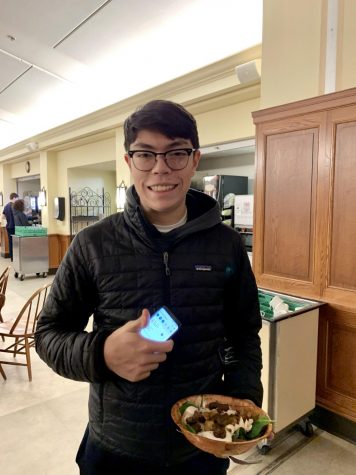Cyrus Vance, Jr. offers the Vance Lecture
November 5, 2017
The Cyrus Vance Lectures were created in 2002 by Kent’s Board of Trustees to honor the late Cyrus Vance. Vance, one of Kent’s most famous alumni, graduated in 1935 and was both a Kent athlete and senior prefect. He went on to become Secretary of State from 1977-1980. In the 1950’s, Mr. Vance served as a Kent Trustee and played a historic role in establishing coeducation at Kent School with the addition of female students in 1960. As Father Schell mentioned in his introduction, “Mr. Vance was an architect of the modern Kent.” The headmaster also relayed Secretary Vance’s belief in the commitment to peace that all of those who are fortunate enough to have attended Kent should share.
This year’s lecture was given by his son Cyrus R. Vance Jr., who, like his father, is committed to reducing violence in his capacity as District Attorney of New York County and as a leader of national organizations working to modernize law enforcement.
DA Vance opened the lecture by highlighting the ineffectiveness of some punitive criminal justice. He reminded the younger audience, faculty included, that New York City in the 60’s and 70’s was not a safe place. The police force, pressured by citizen outcry, responded by exponentially increasing the amount of arrests, so much so that jails were overflowing. He explained that these heightened punitive measures did little to actually deter criminals and that crime was still growing.
Vance argued that the solution lies in part in technology. By adopting computers and statistics into their ranks, law enforcement can target specific crime-ridden areas and strategically place uniforms to reduce crime.
Another solution that he has been working on is simply taking on fewer cases in the DA’s office. After observing the disproportionately high number of Latinos and African-Americans in courtrooms, he decided to avoid making a federal case out of each and every one of these small-time offenses. Vance reported that the change had actually contributed to a reduction in crime.
After a short Q & A session during which he responded to Kent students’ questions about the death penalty, institutionalized racism, and his decision to close the Weinstein case, he ended the lecture on a high note accompanied by a sobering message: it is not enough for law enforcement to be reactive; it must be proactive, but the right steps are being taken to that end.







